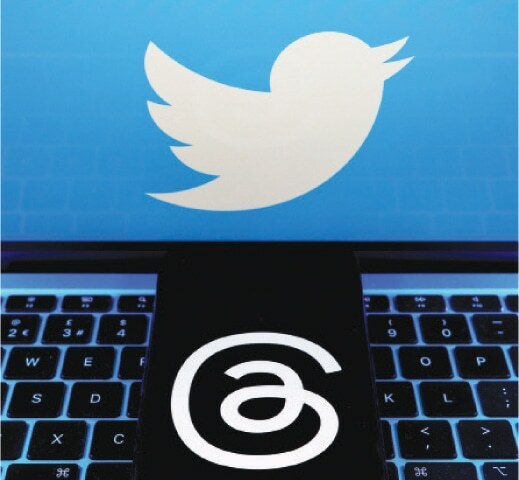Overwhelmed with social media apps Twitter Vs Threads

Over 100 million people have signed up for Threads, the Instagram-driven app, in just over five days. Marketers and brands have another toddler to look after – feed it regularly, dress it up with relevant content, tell good stories, and keep it entertained all the while. In addition, it prevents the parent from sleeping! It’s sleep deprivation all over again. That’s right, nothing has changed much.
Marketing professionals and brands are still unsure how to leverage this app and utilise its predictions of popularity as they explore its features that combine Twitter’s textuality with Instagram’s pictoriality.
While Threads integrates with Instagram (that tracks up to 1.35 billion worldwide as of 2023), since the former is based on the latter’s user base, one is able to retain followers and the following. Furthermore, it tolerates users typing away their opinions (that matter) like Twitter, so one wonders if the target audience is the same. Due to the fact that both target audiences come from completely different planets.
Brands have reduced their Twitter stakes and advertising budgets, as is well known. Could they switch to Threads for the same? Advertising has gained a broader audience and increased engagement thanks to it, but there is no doubt that it will have a profound impact on the advertisement industry as well as influencer marketing, as well as monetization opportunities for brands on social media.
Untangling the threads
In spite of the numbers, clients have been eager to establish their presence because they don’t want to miss out. In the meantime, most brands are contemplating whether and how much to spend on Threads, while agencies have urged them to start exploring it as soon as possible.
Conversations have begun between the clients and momentum is building. Because users are inadvertently signing in to Threads using their Instagram accounts and credentials, it will be crucial to create advertising that is Instagram-friendly and builds a narrative that amplifies the parent platform’s messaging.
It appears from a quick glance at some of the major threads pages that a lot of content is shared on Threads that is mostly cross-shared from existing platforms (Facebook, Instagram, etc.). What is the point of coming up with new content for yet another digital platform? Is it overwhelming for readers to stay relevant on yet another platform? Is it going to be necessary for e-magazines, web portals, and influencers to curate entirely different content in order to remain unique?
Users clearly do not want to see repetition. For people to switch from one app to another, there must be a compelling reason. In order to compete with social giants such as Twitter, it must differentiate itself. There is no way an extension of Instagram will last, which brings us back to the same point I mentioned earlier: target audience.
Several brands have shared behind-the-scenes posts, product launches and other updates, while users are directly communicating with the brands for critical/constructive feedback. The agencies will need to combine robust textual content with relevant audio/visual content.
It’s a content desert out there, and your target audience won’t hesitate to ignore less-than-stellar content. It will be provided by another platform if one cannot.
How long will the competition last?
Since time immemorial, Coke and Pepsi have been rivals. There are many beverages that come and go or are acquired by either of them, but this brand war has lasted for years. Apple vs. Microsoft. The BMW vs Audi battle. The fierce rivalry of these two is here to stay, even as the competition brings out the best creative work.
This raises the question of the sustainability of the Twitter-Threads digital war. Will this become another example for marketing and advertising professionals to study in the future? Are Threads going to fade away like ‘just another social media platform’? Does it have what it takes to remain here forever?
At this point, we cannot say whether it will threaten Twitter, but if Meta’s success is an indication of its efficacy, then users, brands, and agencies can expect another social trial if the app explodes.
